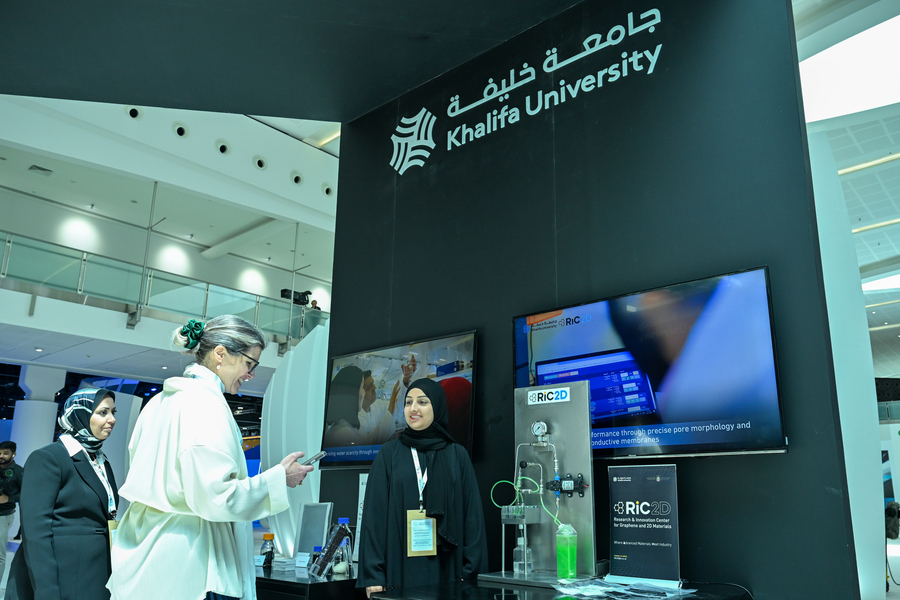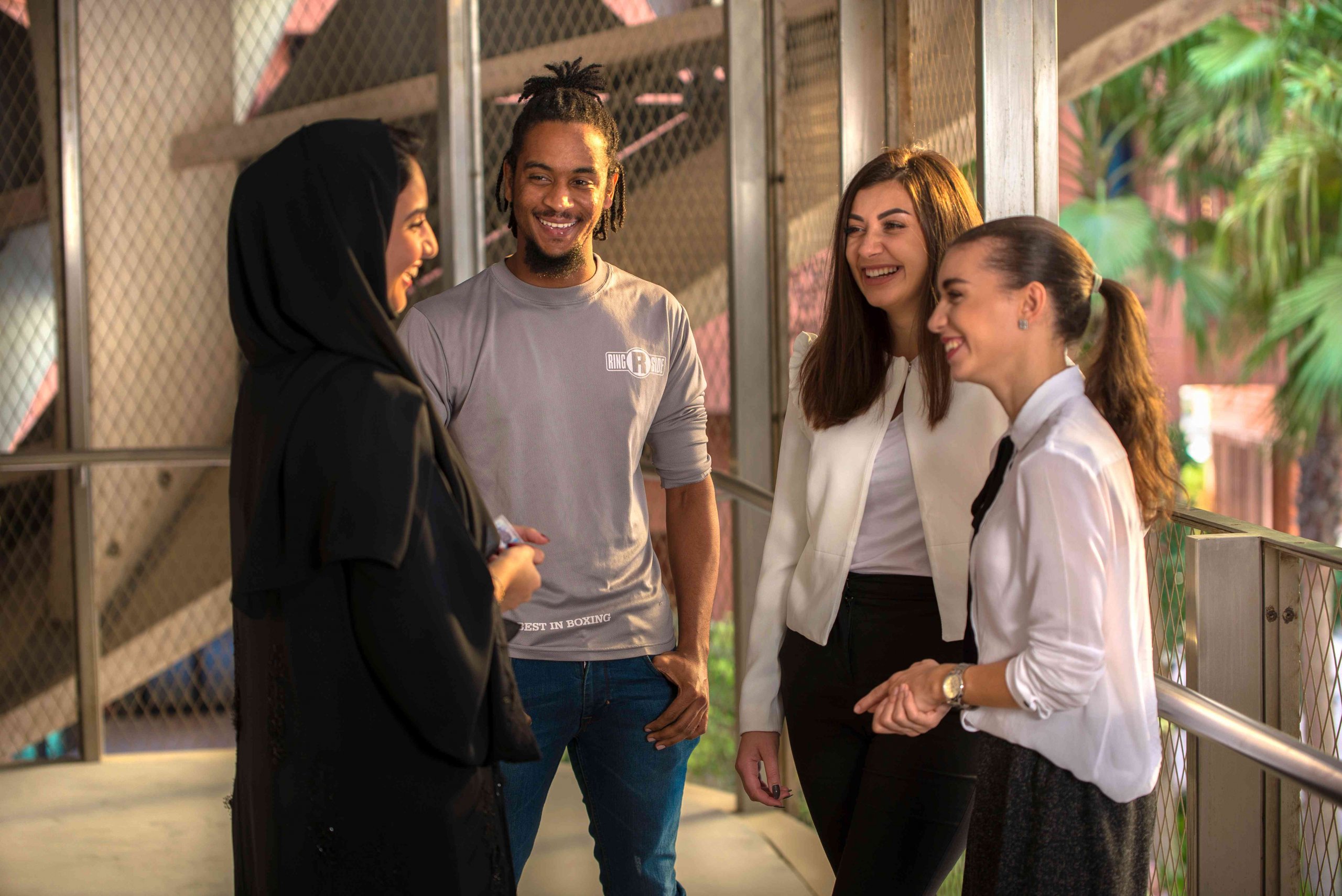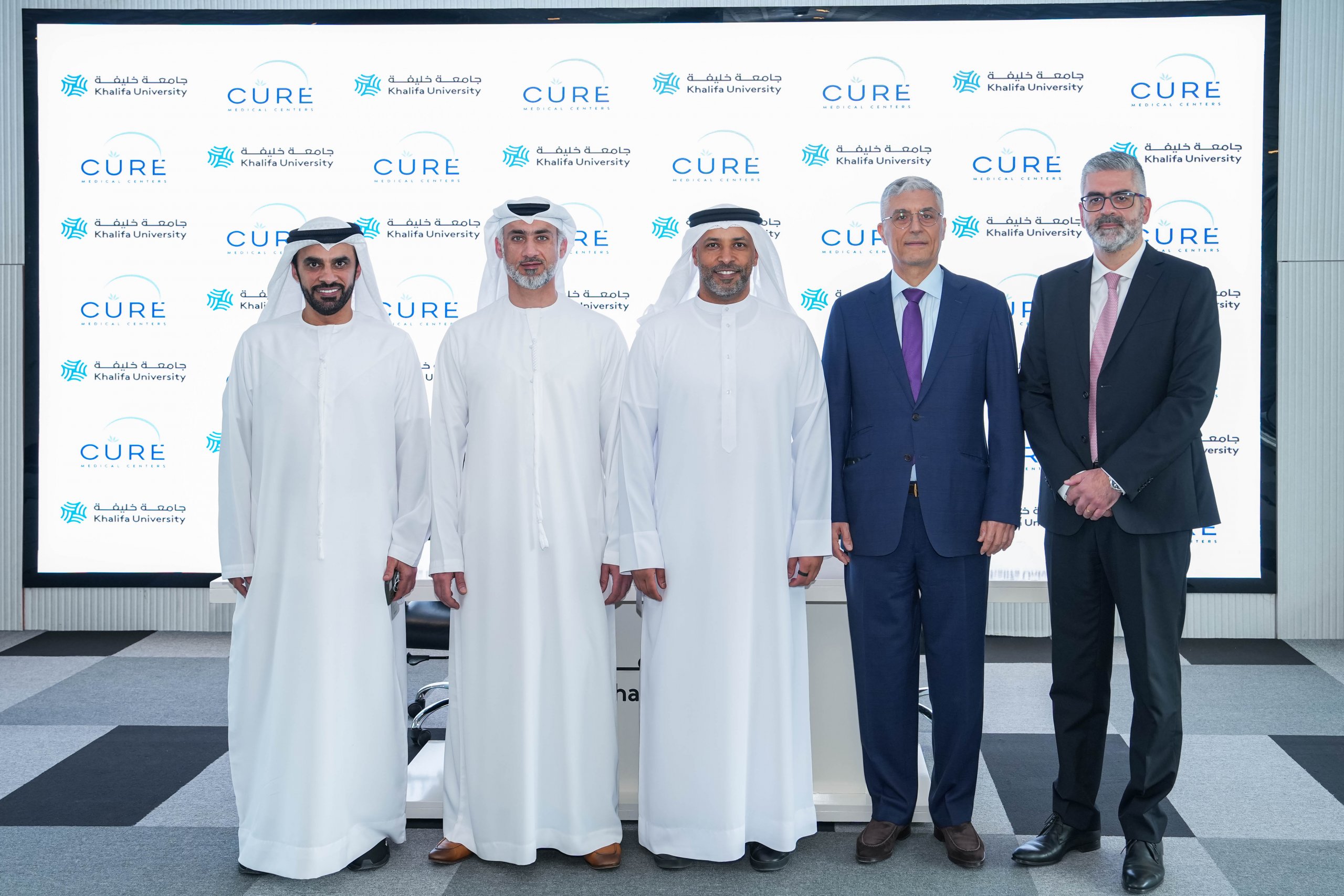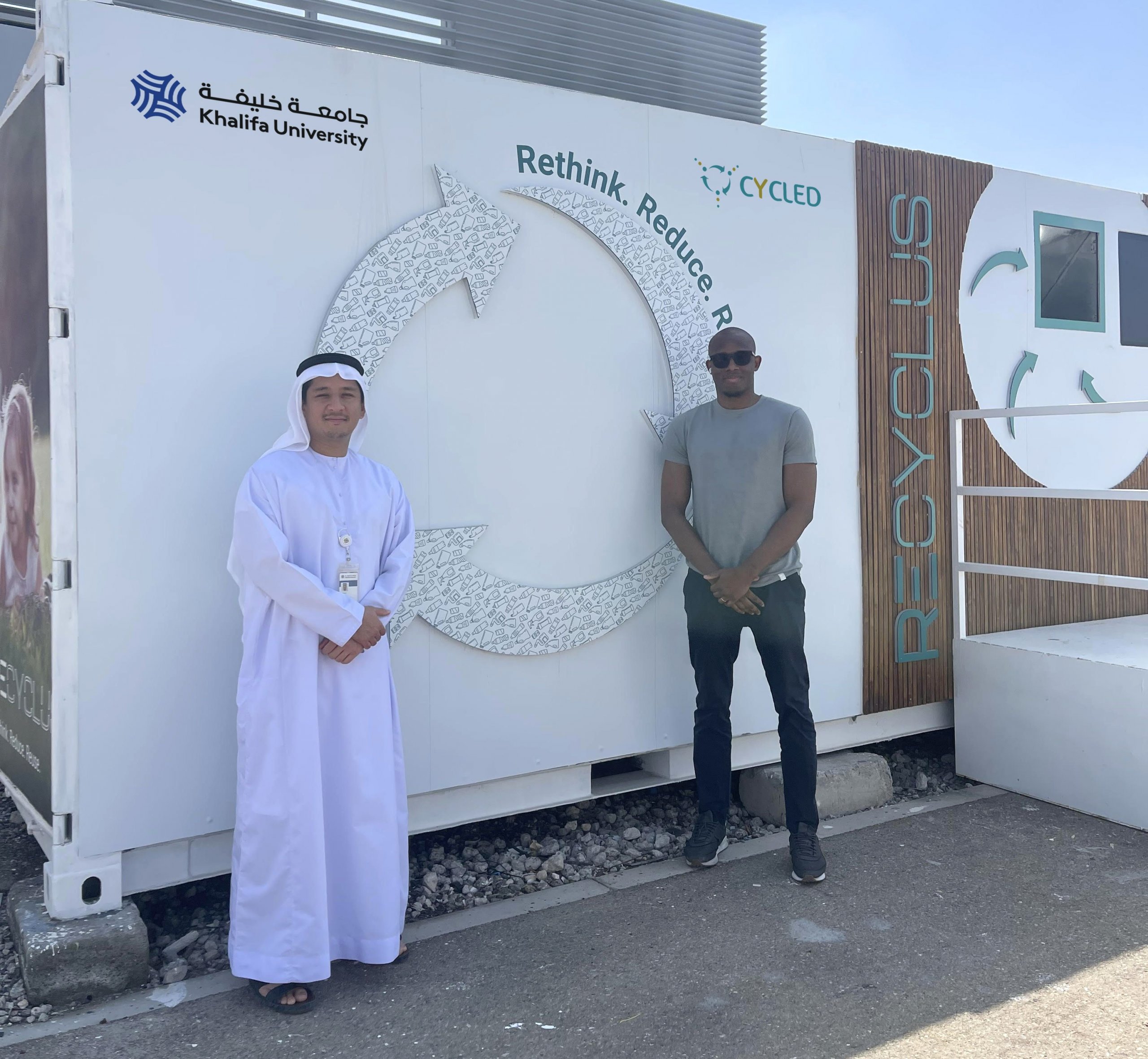Mixed emotions of nostalgia for the past and hope for the future ran high among the post-graduate students of Masdar Institute as they readied themselves for the big graduation day on 5 June, 2011.
What would they miss the most? The answer was unanimous: their friends, the diversity and the community.
“Where else could I have met people from so many different cultures? I now have friends from Syria, Mexico, Germany and India. When I came to study here, I missed Istanbul. But two years later, I feel the time has just whizzed by,” said Duggu Cihan (24).
Naji Amira (23) from Jordan agreed. “There was no opportunity to get into an argument or heated debate in my two years here because I was living in such a close community. You can hear so many different voices buzzing around you.”
Most students claimed that studying at Masdar Institute was a learning experience for them. For Brian Warshay (27), who had lived and grown up in the US, this was an eye-opener to the Islamic culture.
“However, the exposure isn’t just at the social level,” said UAE resident Asma Al Rashedi (26). “The experience at Masdar Institute is unique because exposure to this multi-cultural community means you are also intellectually ready to start thinking about the wider world.”
For most students, this exposure led them to take up research projects across the world. Take, for example, US-based Laura Stupin (26), whose project involved green cooking in the rural belt of India. “Cooking takes up a substantial amount of energy at homes across the world. But it is only in urban areas that people pay for fuel and a clean way of cooking. For many in the rural belts, cooking still involves burning biomass fuels. They leave behind a dirty residue – smoke – which affects and kills millions every year. My project was for an NGO in India that was looking for alternative ways of encouraging people in the rural belts to opt for clean energy.”
“Thanks to the exposure I received here, I feel empowered now to take my knowledge and expertise to Ghana and explore how much I can make a difference to the world outside after I graduate.”
Duggu’s project was also based in India. She designed a network delivery system for tuberculosis in rural areas in the eastern Indian state of Bihar for an NGO so that they can cater to maximum number of workers afflicted by the disease. What’s next? Duggu wants to work in manufacturing or supply chain industries in the Middle East.
The exposure that students got at Masdar Institute was not only internal. Being part of the institute meant they had access to international summits and conferences like the World Future Energy Summit (WFES), the assembly of the International Renewable Energy Agency and the Zayed Future Energy Prize (ZFEP). They could also interact with high-profile visitors including US Secretary of State Hilary Clinton and UN Secretary-General Ban ki Moon. “These were people who would have been out of our reach had we chosen to study anywhere else,” said Brian, whose project involved lifecycle assessment of a bio-fuel crop that can be implemented for aviation.
The students’ reasons for joining Masdar Institute vary. “I was fascinated by the fact that an oil-producing country like the UAE was investing so much into clean technology,” said Laura.
UAE-resident Noura Al Dhaheri (24) chose Masdar Institute as she was answering a call to solve the world’s biggest problem. “I had the access to cutting-edge technology and the option to study a topic of global interest in my own country. The decision was easy to make.”
“I knew nothing about research when I started. I learned a lot during my time here. The culture here is unique. It makes you think on a global scale,” she said, describing how her project involved designing a mathematical model to optimize profits made from selling high-quality products and reducing carbon emissions in oil refineries and the supply chain sector. “As a woman, I feel proud to have achieved what I did. Sure, it is a good thing to be a good wife and mother but if a woman can also make a change to the universe, why not?,” she quipped.
Asma’s project, too, was revolutionary. She has been developing a brain computer interface that will benefit paralyzed people. “A cap placed on one’s head will interpret any desire of the person to move his paralyzed part of the body. This could alleviate at least the feeling of helplessness among such people.”
“The impressive list of faculty is why I accepted the offer to study here in the first place,” said Naji. “They are the ones who arranged everything for us — scope for advanced research and world-class labs so that we may experiment to the fullest.”
Abdul Qadir (23) chose to study sustainability because “I have lived in Saudi Arabia, Pakistan and the UAE. Wherever I went, there was plenty of sunlight and I kept wondering why we did not harvest that energy.”
Though he will miss his friends, Abdul will be staying back, and then head to MIT to finish his PhD on low-cost solar collectors. “The thermal collectors currently used for water heating uses flat plates that are not cost-effective. We are working on solar collectors that can make desalination projects more feasible as they will be cost effective. Finance is the key driver in all sectors,” he said.
He hopes to get funding at MIT to take the project to the next level of practical implementation as he is in the process of building a field station that can be a test bed for the project.
Naji, too, is interested in research and development but in the practical world. “I am interested in R&D but I will take the values and lessons of sustainable living learnt here and use them in an environment not perceived as very sustainable – the oil and gas industry,” he said.
The idea came to him while he was working on his project — breaking down hydrogen sulphide produced in the oil and gas industry to hydrogen and sulphur (instead of hydrogen and unclean water).
Students also mulled on the future of sustainability as they prepared to bid adieu to the institute. The subject of sustainability is coming up more frequently with education and awareness, but much more still needs to be done internationally, said many students. “The future offers a host of opportunities; we are not moving fast enough. Research and implementation need to go hand-in-hand,” said Abdul.
“Even the solar and wind resources may not be available to us as climate changes occur. The challenge in the future will be finding newer combinations and using hydro reserves intelligently,” he added.
International agreements must be drawn up to force every nation to plan for a sustainable future, and research has to be given priority for new technologies to be developed and greener ways to use fossil fuels, said Noura.
Any parting words for the next batch? “There are plenty of opportunities at Masdar Institute. Use them wisely,” advised Brian. “There is funding available for tours and student activities; you just have to use them proactively. Attend conferences, arrange group expeditions and broaden your horizons.”
-ENDS-
The captions are:
Naji Amira: The impressive list of faculty is why I accepted the offer to study here in the first place.
Abdul Qadir: The challenge in the future will be finding newer combinations and using hydro reserves intelligently.
Duggu Cihan: Where else could I have met people from so many different cultures? I now have friends from Syria, Mexico, Germany and India.
Noura Al Dhaheri: I had the access to cutting-edge technology and the option to study a topic of global interest in my own country in Masdar Institute.
Brian Warshay: There are plenty of opportunities at Masdar Institute. Use them wisely.
Laura Stupin: Thanks to the exposure I received here, I feel empowered now to take my knowledge and expertise to Ghana.






